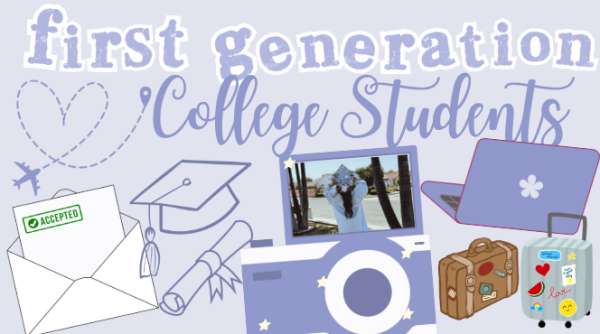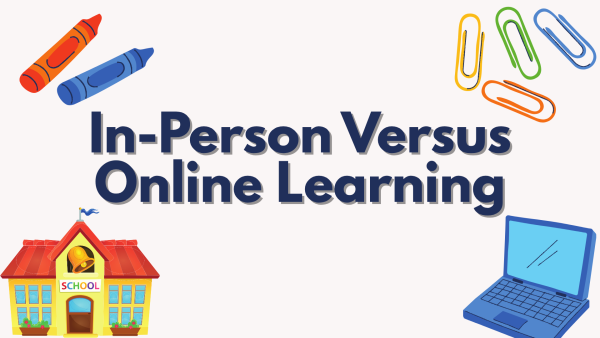The College Application Process for Incoming Seniors and Juniors
Like a constant cloud looming over your head, college may be something that entices you, yet stirs up anxious emotions. Whether you are fully prepared for your junior year or haven’t begun to think of what and where you want to go, there are ways to be successful and take advantage of your time. This guide provides you with my successful college timeline, and explains how to navigate college applications with school work. Getting into a mildly competitive school took dedication and effort, but it was all worth it in the end.
- Brainstorm your interests and thoughts on your future career.
This is your most important step! Having a general idea of what you want to do, even if it’s likely to change, will help shape your applications. Ask your friends and parents what they see you doing in the future. If you have a passion for something, research career opportunities that come with it. I had two paths I wanted to go down: animal science or fashion merchandising. This really helped me in my application process as I looked for job opportunities and majors.
- Take quizzes geared toward helping you find your ideal college.
Now that you have identified a few of your interests, look for schools that cater to that major. Niche is helpful to research specific colleges, and I often used Google suggestions to see top schools for my major. It does not end here though! After making a running list of schools, visit their website to browse your major and see if it is fit for you.
- Talk to your parents about your financial and living situation.
Before your actual college application begins, discuss your financial abilities with your family. See if they have some money saved, and talk about your tuition boundaries. Make sure they are on board with the colleges you have picked thus far. Consider applying for grants and scholarships to ease the burden of tuition and college costs.
- Sign up for the Common Application and UC/ Cal State applications and add your desired schools.
To most accurately and efficiently explain the Common App: it is a hub for almost all private and public schools that are not affiliated with any given state. For example, you can apply to the University of San Francisco on the Common App, but Cal State University of San Francisco is on the California State application. For the Common Application, search your schools and add them to the list. For the UC and Cal State applications, choose your desired location and begin filling in information.
- Let two of your chosen teachers and one counselor know you want them to write a letter of recommendation for you.
Make sure to choose your recommenders wisely and give them plenty of time. Choose a teacher you have a personal relationship with that will write you a convincing letter. Not all schools will require two recommenders, but most will require a counselor. Talk with who you pick and add them to your invitees on the Common App. For UC and Cal State schools, be sure to tell your recommenders that you need a letter sent to them as well.
- Scroll through each application and brainstorm essay topics.
This is your time to give college admission staff a glimpse into who you are! Read other sample essays and outlines on how to begin your first draft. Think about what you want to tell them because this is your only opportunity! UC applications require multiple free-response essays, and the Common App requires one longer essay. Reuse as much content as you can to save yourself time.
- Add personal information and educational background.
When scrolling through the Common App, you will see different tabs to complete it. The largest portion is your family and personal background. This may take a few days to complete, but once it is done it crosses a huge check off your list. Making sure your information is accurate will help admission officers get to know you.
- Determine if you want to apply for Early Action or Early Decision.
If you are confident in your college choice apply for Early Decision! This puts you at an advantage above others, as it solidifies your decision. Be aware this will require everything to be turned in at an earlier due date. If you want to be considered for a school you like earlier, but don’t like the commitment of a decision, apply for Early Action.
- Begin FAFSA forms with parents and apply for scholarships.
Begin FAFSA forms to turn in for financial aid. Even if you ask your parents for help, it may take a few days to complete. Be concise in your financial situation to receive the most bang for your buck. Begin to look for scholarships that you believe would best suit you.
- Have people proofread your essays and turn them in once finished.
Reread your essay and have others look over it as well. Having a different perspective on what you wrote is very beneficial. The earlier you can turn in your essays, the better!
- Make sure everything is completed.
Check that the essays, FAFSA forms, scholarships, letters of recommendation, and personal information are all turned in. Forgetting anything may forfeit your application!
- Check emails every day, flagging important emails about your portal login.
Flag all emails that you receive from colleges regarding applicant portals. This is where you can access all of your information regarding your decision. Save all your college logins and passwords in one place. Frequently check the portal to make sure there is nothing more required. In some cases, they ask you for a second-semester transcript, so check that in the portal.
- Do not stress! You will get into the school you’re supposed to attend.
When waiting to hear back from colleges, try your best not to freak out. It’s hard not being aware of what is going to happen, I know, but you will end up in the place you’re supposed to. If you don’t like any of the schools you were accepted to or you changed your mind, there are plenty more options like JC or trade schools.
After talking with Huntington Beach High School’s counselor Suji Chung, she outlined the importance of self-reflection and time management for incoming seniors.
Q: How do you suggest incoming seniors spend their time wisely during the summer with their social life as well as college applications?
A: After a year like this, my hope is that all students can spend some time being away from the screen, pursuing personal interests, and reconnecting with family/friends. Find ways to generate creative energy in your life.
For rising seniors, summer is a critical time to start the application process. The first place to start is researching postsecondary options and developing a balanced college list. Having a list of colleges can then provide a roadmap of what a student can do to prepare for applications. Many colleges require a personal statement and essay questions, which can be drafted in the summer. It’s also helpful to start compiling a high school activity and awards list or resume. Many colleges open up their applications in early August, some even as early as July 1, so it would be a good idea to create an account and start filling them out too.
A quick plug. The HBHS College/Career Center is hosting a 2-day virtual workshop to help students prepare for the college application process on June 22-23. We highly recommend rising seniors attend our College Application Kick-Off event.
Q: In your opinion, what is the most important step in the college application process?
I have 2 answers for this:
A: 1) For college admissions, one of the most weighty parts of the application is a student’s academic record. Colleges are assessing college readiness and preparation, and they do so by looking at the types of classes a student has taken and the grades they have earned. Colleges also consider classes a student is taking in their senior year. Make sure you are earning strong grades every semester, and also taking classes that are rigorous within reason.
2) As for college applications, I believe that being well researched and staying organized are critical. The research aspect is important because it provides a roadmap of which colleges a student will be applying to. I recommend creating a Google Sheets or Excel spreadsheet of colleges as one researches. Students can easily make their own or search for a template on the Internet. It can be used to collect key statistics and notes about colleges while also keeping track of application components and deadlines.
Q: If you had to give an incoming senior a piece of advice about choosing a college, what would it be?
A: Start with personal reflection. You want to be able to articulate your priorities, preferences, and interests. Consider what life after high school looks like for you. How do you envision it? What kind of academic, social, personal experiences are you seeking? In which ways do you want to grow? This is so important! If you are set on going to college, truly ask yourself – why do you want to go to college? Oftentimes, college is talked about in a way where “getting into a school” is deemed as a valuable achievement, but students should remember that they are the consumer. They can research, apply and select a college that is the best fit for them. Remember that you have more control over college admissions than you think!
The process of college applications may seem daunting and unnecessary, but once you dive in, it will be much easier to complete. Be prompt in everything you do and be on the lookout for new opportunities. I wish the best of luck to you all.
Your donation will support the student journalists of Huntington Beach High School. Your contribution will allow us to cover our annual website hosting costs.
Thank you for supporting our program!






